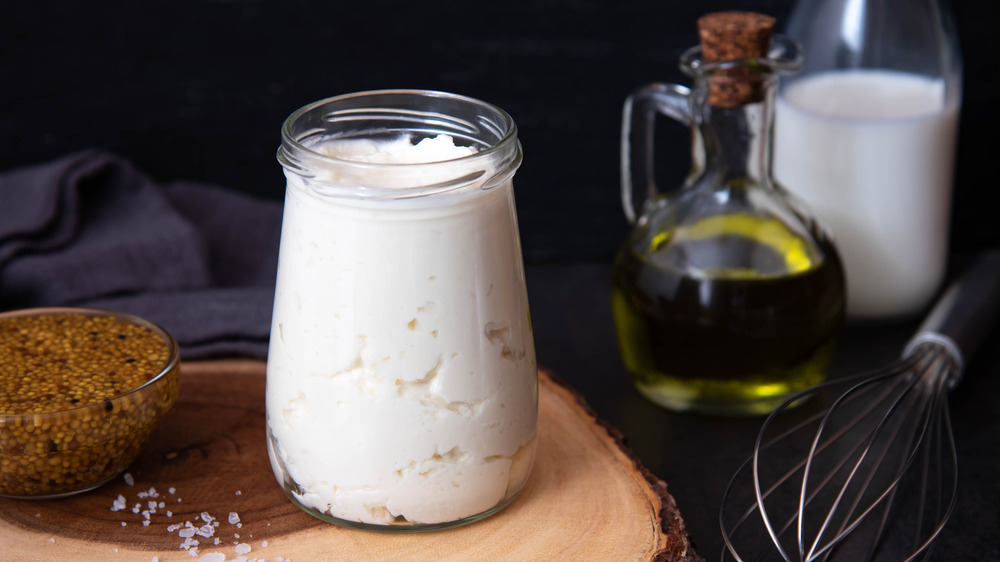Julia Child's Favorite Mayonnaise Brand Has The Internet Divided
A short while ago, a recipe for a Julia Child-style tuna salad sandwich was published by The New York Times. While helpful for some, the recipe itself was not so important as an observation made by The Kitchn's Lauren Masur: Julia Child favored Hellmann's mayonnaise over other brands. Child's status a Hellmann's partisan directly contradicts The Kitchn's own stance that Duke's, a key ingredient in Southern tomato sandwiches, is the undisputed mayor of mayonnaise. Perhaps even more striking is that Child arguably contradicted herself. She had a recipe for homemade mayo. Yet WBUR's Here and Now notes that while appearing in a cooking segment with the show's host, Child advised people not to make their own mayo "because Hellmann's is the best."
So, another voice appears in The Great Mayo Debate, which seems to periodically appear on food news sites, corners of social media, and random fora, such as the Doctor Who-focused The Divergent Universe. For those who may not be in the mayo know, there are two types of mayonnaise debates. One questions whether mayonnaise is even worth having while the other, having taken the wonders of the blobby egg concoction as a given, argues about the brand of mayonnaise one should use.
Calling it a debate is debatable
However, to grace the mayo argument with the dignity that the word "debate" implies is to utterly mischaracterize the manner in which people defend their preferred brand of mayo. As Severo Avila wrote in a column for Rome New-Tribune in April, when a local celebrity asked folks on Facebook what the best mayo is, 155 people wrote comments along the lines of "Duke's is the ONLY mayo," "Blue Plate! It's all that is allowed in my kitchen," and "I'm a Hellmann's guy," none of which can reasonably be described as an actual point.
Of course, this all assumes that mayo is, in fact, worth arguing over, a point not universally agreed upon. While Food Republic revealed the existence of the non-mayo people back in 2011, maybe the real issue with mayo was revealed in a 2018 article in Philly Mag titled "How Millennials Killed Mayonnaise." "It's too basic for contemporary tastes — pale and insipid and not nearly exotic enough for our era of globalization," the writer laments. After momentarily entertaining the idea that the rejection is due to mayo's jiggliness or bodily fluid color, the writer decides it's a young generation's gut reaction to reject "the Greatest Generation's condiment of choice." We suspect some projection may be involved here.
Still, while people are allowed their preferences, it doesn't necessarily amount to a debate. After all, it's only mayo. What's there to debate?

